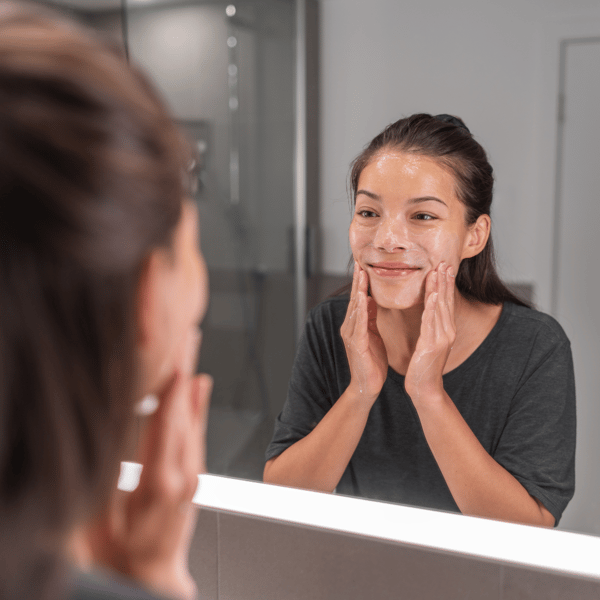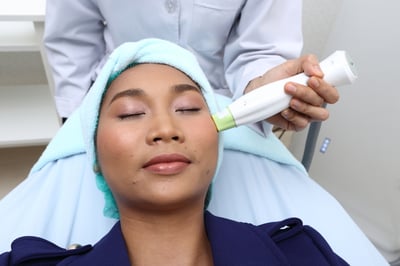
Acne can affect people of all ages, but why does it acne affect everyone so differently? A successful acne treatment for one person might not be a successful acne treatment for the next. Let us start with why we get acne.
Why do I get acne?
What causes acne, or a single pimple, is mostly the same regardless of how old you are. When you combine the skin’s oil, dead skin cells, and bacteria, a pore becomes plugged, and acne appears. It could be limited to one breakout pimple near the surface, multiple surface breakouts or deeper acne that tends to be more painful and takes a while to disappear. Beyond the basics, there are also two factors that affect your odds of getting acne: family history and hormones. If your mom and/or dad had acne, you are very likely to develop it as well in your teens or even adulthood. Additionally, if you have surging hormones —which happens during adolescence and during pregnancy—breakouts become more likely. This is a primary reason why, for many people, acne improves after their teenage years and after pregnancy. Your hormones have leveled off and no longer fuel those bad breakouts.
Benefits of Prescription Grade Acne Medication
Do you continue to see acne along your lower face, jawline, neck, chest, or back despite maintaining a regular skincare routine with over-the-counter products? If you answer yes, you may benefit from using prescription-grade acne medication. While over-the-counter acne medications effectively manage minor outbreaks of facial acne, many people experience persistent acne that doesn’t go away with drugstore brand treatments. Prescription-grade acne medication offers a stronger level of acne treatment than store-bought products, making them essential for many people with persistent, cystic, or other severe cases of acne.
Your local board-certified dermatologist will be able to determine which prescription-grade acne medication is best for your particular struggles, age, and gender, but common medications include:
- Topical and oral retinoid including tretinoin and isotretinoin
- Antibiotics including doxycycline and minocycline
- Topical antibiotics
- Oral contraceptives
Regardless of what prescription-grade acne medication you are recommended, it is important for you to give the medication time to work. It is likely not going to be a quick overnight fix and may take upwards of 3 months to show a noticeable difference. Make consistent with your medication, maintain follow-up appointments with your dermatologist, and notify their office immediately if you start to experience any side effects.
Struggling with Stubborn Acne?
If you, or your child, are struggling from acne the skin health experts at Forefront Dermatology are ready to help. Find the Forefront dermatologist nearest you today to schedule an appointment.





